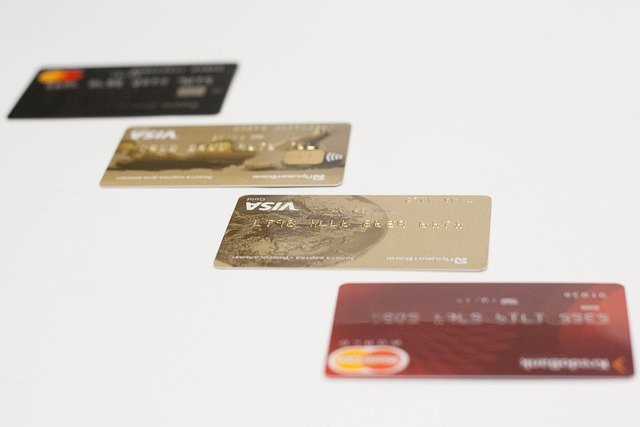Navigating Car Loans with Poor Credit: A Comprehensive Guide
Discover effective strategies for obtaining auto financing despite a less-than-stellar credit score. This in-depth guide explores the nuances of car loans for individuals with poor credit, offering practical advice on improving approval odds, understanding interest rates, and finding the best financing options. Learn how to overcome credit challenges and drive away in your desired vehicle.

Understanding Credit Thresholds for Auto Financing
Credit scores play a significant role in determining whether lenders will approve your car loan application and what terms they’ll offer. Most lenders categorize credit scores into ranges: excellent (750+), good (700-749), fair (650-699), and poor (below 650). While traditional lenders may hesitate to approve loans for borrowers with scores below 600, specialized subprime lenders focus specifically on this market segment. These lenders evaluate additional factors beyond credit scores, including income stability, employment history, and debt-to-income ratios. Understanding where your credit stands helps set realistic expectations and guides you toward appropriate lenders.
The Impact of Poor Credit on Auto Loan Interest Rates
Poor credit significantly affects the interest rates you’ll encounter when financing a vehicle. Borrowers with excellent credit might secure rates between 4% and 6%, while those with poor credit often face rates ranging from 14% to 20% or higher. This difference translates into substantial cost variations over the loan term. For example, on a 20,000 dollar loan over five years, the difference between a 5% and 15% interest rate amounts to thousands of dollars in additional interest payments. Beyond the rate itself, poor credit may result in larger down payment requirements, shorter loan terms, and stricter approval conditions. Lenders view lower credit scores as indicators of higher risk, and they compensate for this perceived risk through elevated interest rates and more stringent terms.
Exploring Auto Financing Options for Poor Credit Borrowers
Several financing pathways exist for borrowers with credit challenges. Subprime auto lenders specialize in working with individuals who have credit scores below 600, offering approval rates higher than traditional banks. Credit unions often provide more flexible lending criteria and personalized service, making them valuable alternatives to conventional banks. Buy-here-pay-here dealerships offer in-house financing, though these typically come with the highest interest rates and should be approached cautiously. Online lenders have expanded the market by connecting borrowers with multiple lending sources simultaneously, increasing approval chances. Co-signers with stronger credit can dramatically improve loan terms, as lenders gain additional security through a second responsible party. Each option carries distinct advantages and drawbacks that merit careful consideration based on individual circumstances.
| Financing Option | Typical Rate Range | Key Considerations |
|---|---|---|
| Subprime Lenders | 12%-20% | Higher approval rates, larger down payments required |
| Credit Unions | 10%-16% | Membership required, personalized service, competitive rates |
| Buy-Here-Pay-Here | 18%-25%+ | Easiest approval, highest costs, limited vehicle selection |
| Online Lenders | 11%-18% | Multiple offers, convenient comparison, varying terms |
| Co-Signed Loans | 8%-14% | Best rates available, requires creditworthy co-signer |
Prices, rates, or cost estimates mentioned in this article are based on the latest available information but may change over time. Independent research is advised before making financial decisions.
Enhancing Loan Approval Prospects
Improving your chances of approval involves strategic preparation before applying. Start by reviewing your credit reports from all three major bureaus to identify and dispute any errors that might be lowering your score. Saving for a larger down payment demonstrates financial commitment and reduces the lender’s risk, potentially leading to better terms. Reducing your debt-to-income ratio by paying down existing obligations shows lenders you can manage additional monthly payments. Consider applying for a more affordable vehicle rather than stretching your budget, as lenders view modest loan amounts more favorably. Gather documentation proving stable income and employment, including recent pay stubs, tax returns, and employment verification letters. Shopping for pre-approval from multiple lenders within a short timeframe allows rate comparison without significantly impacting your credit score, as multiple inquiries within 14 to 45 days typically count as a single inquiry.
Refinancing Opportunities for Car Loans
Refinancing becomes a valuable tool once you’ve established a payment history and improved your credit standing. After making consistent on-time payments for 12 to 18 months, your credit score may rise sufficiently to qualify for better rates. Refinancing replaces your existing loan with a new one at more favorable terms, potentially lowering your monthly payment or reducing the total interest paid over the loan’s life. The process involves applying with new lenders who evaluate your current creditworthiness rather than your score at the original purchase time. Before refinancing, calculate whether the savings justify any fees associated with the new loan. Some lenders charge prepayment penalties on original loans, which could offset refinancing benefits. Market conditions also matter, as overall interest rate environments fluctuate and might present opportune moments for refinancing. Building a stronger credit profile through responsible payment behavior creates pathways toward better financing terms in the future.
Moving Forward with Confidence
Navigating auto financing with poor credit requires patience, research, and realistic expectations. While the process presents challenges, numerous lenders specialize in serving borrowers with credit difficulties. Understanding how credit thresholds work, recognizing the true cost of higher interest rates, exploring all available financing options, preparing thoroughly to enhance approval odds, and planning for future refinancing opportunities all contribute to making informed decisions. The vehicle you purchase today can become a tool for rebuilding credit through consistent, on-time payments, ultimately opening doors to better financial opportunities down the road. Approach the process methodically, compare offers carefully, and choose terms you can comfortably maintain throughout the loan period.




